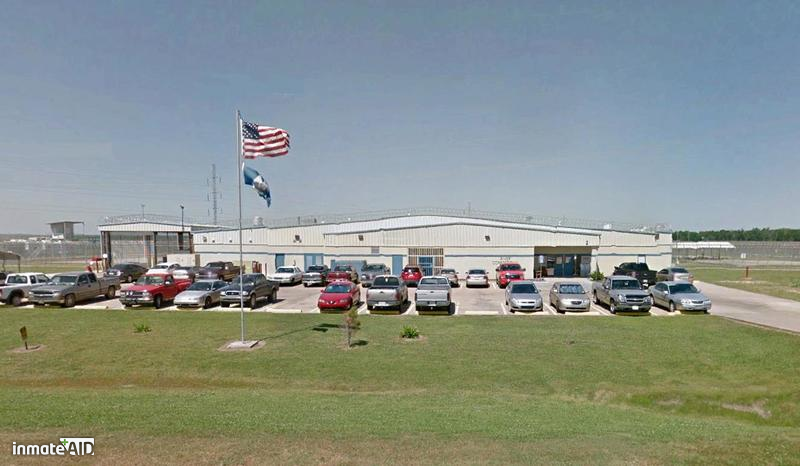Thank you for trying AMP!
You got lucky! We have no ad to show to you!
Connect with an Inmate
River Correctional Center (ICE) - LaSalle
Private Facility
River Correctional is for Private Facility offenders have not been sentenced yet and are detained here until their case is heard.
All prisons and jails have Security or Custody levels depending on the inmate’s classification, sentence, and criminal history. Please review the rules and regulations for Medium facility.
The phone carrier is NCIC Inmate Telephone Services, to see their rates and best-calling plans for your inmate to call you.
If you are seeking to send your inmate money for commissary, one recommended for this facility is TigerCommissary There is a fee for sending money, see their rates and limitations.
If you are unsure of your inmate's location, you can search and locate your inmate by typing in their last name, first name or first initial, and/or the offender ID number to get their accurate information immediately Registered Offenders
You can support your loved ones at River Correctional on InmateAid, if you have any immediate questions contact the facility directly at 318-757-2154.
Located in Ferriday, LA, River Correctional operates as a private contractor with various government agency agreements providing state-minimum custody requirements. Programs are offered to all custody levels, including work release residents focused on reentry success. With a strong emphasis on rehabilitation, River Correctional provides comprehensive educational and vocational opportunities. Onsite amenities include dietary, health, fitness, educational, religious, and recreational services. Regular inspections ensure compliance with government standards, ensuring the facility's continued operation.
The River Correctional Center is a medium-security facility managed by LaSalle Corrections. With a capacity to house approximately 600 adult male inmates, the center operates under the authority of the Concordia Parish Sheriff's Office and is overseen by Warden Robert Tanner. As part of a cluster of correctional facilities that includes the Concordia Parish Correctional Facility and the Concordia Parish Work Release Center, the River Correctional Center plays a critical role in securely housing detainees for U.S. Immigration and Customs Enforcement (ICE).
LaSalle Corrections is committed to transforming lives by implementing evidence-based and innovative programming solutions designed to support inmates from booking through re-entry. The organization provides a comprehensive range of programs and services to ensure the secure processing, housing, treatment, and reintegration of inmates into society. Beyond standard amenities such as outdoor recreation, telephone access, and commissary services, LaSalle facilities offer opportunities for continuing education, participation in rehabilitative programs, vocational skill development, and even the potential to earn additional income, all aimed at fostering positive outcomes and successful reintegration.
Individuals unable to post bail within the first 24 hours must appear before a judge, where charges are formally presented, and bond is set. Upon arrival, detainees undergo intake procedures, including property inventory, medical screening, and booking. They are then assigned housing based on the classification of their charges, whether felony or misdemeanor, ensuring effective management and security. Good behavior may lead to lower classifications and additional privileges, while infractions result in stricter classifications and fewer liberties. Inmates serving as trustees assist with facility tasks such as food preparation, laundry, and commissary, earning minimal compensation or sentence reductions for their efforts.
The facility is designed with "pods," which include individual cells, a common area with sturdy tables and seats, and access to an enclosed outdoor recreation space. Inmates spend designated times in their cells and communal areas, engaging in activities such as reading, playing games, or watching television. Movement beyond the pod, including visits to the commissary, library, or recreation area, is conducted under constant supervision by unarmed correctional officers. The jail environment is generally less stressful than that of a state prison, as sentences are typically shorter.
The Parish Jail offers a phone program for outgoing calls only. While collect calls can be costly, families may set up prepaid accounts through third-party services, which often include additional fees. You might qualify for discounts on inmate calls, especially if the communication with your inmate is frequent. All calls are recorded, so discussing sensitive legal matters is discouraged. Inmates may also receive books and magazines directly from publishers to prevent contraband, and personal letters or selfies can be sent through an app starting at $8.00.
Weekly commissary services allow inmates to order essentials, with increased spending limits on holidays. Indigent inmates are provided with basic hygiene items, stamps, and writing materials at no cost.
Select inmates may participate in community service programs, contributing valuable labor while developing job skills and accountability. These opportunities are reserved for individuals demonstrating good behavior and cooperation with facility staff. Participation in such programs not only benefits the community but can also lead to sentence reductions, encouraging inmates to maintain positive conduct during their incarceration.









